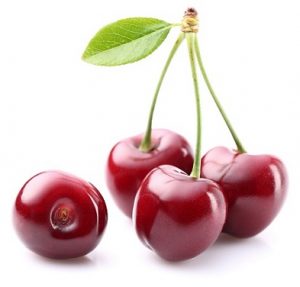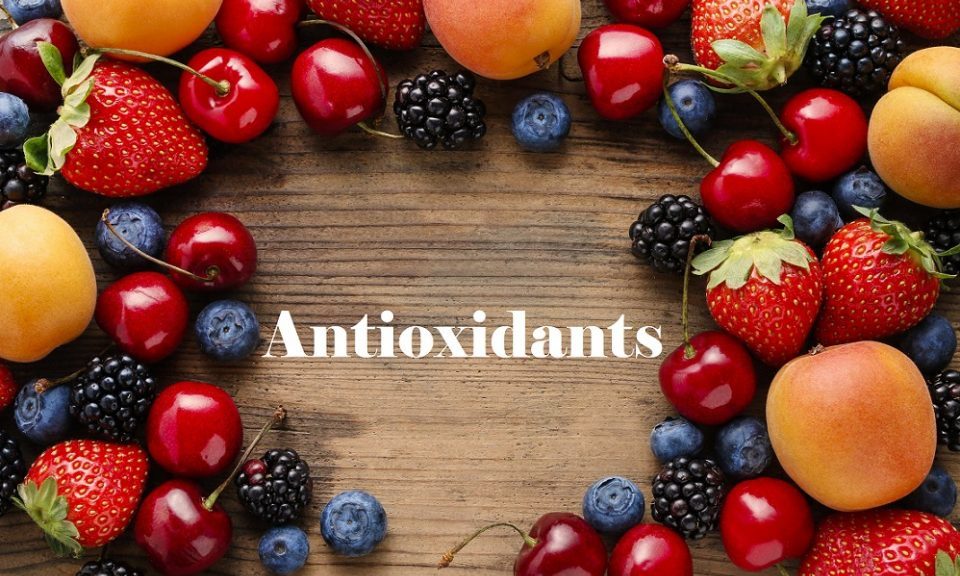
Antioxidants Explained
What exactly are antioxidants and why should we include them in our diets?
We often associate the word ‘antioxidant’ with good health, but do we really know what antioxidants are? An antioxidant is a molecule that inhibits the oxidation of other molecules, helping to prevent types of cell damage.
Nutritional therapist Claire Barnes, a technical advisor for Protexin, explains why we should include antioxidants in our diet: “Through our daily lives we are exposed to free-radicals mainly through environmental toxins, such as chemicals, cigarette smoke and sun exposure, but also through the foods we eat, our emotional state and even through exercising. These free-radicals can cause damage to cells and tissues in the body. Antioxidants in our diet can stabilise these free-radicals and limit the damage they can cause.”
To explain in more detail, our bodies are constantly being exposed to free radicals, which cause oxidative stress- a process that can trigger cell damage or death to the cell. Oxidative stress causes damage to cell structure and cell function by overly reactive oxygen-containing molecules and chronic excessive inflammation. Antioxidants prevent oxidative stress by removing free radicals intermediates and inhibit other oxidative reactions- so it’s extremely important to have a sufficient level of antioxidants.
“Free radicals can damage proteins, fats and our DNA, potentially causing generic cell mutations,” adds Debbie Paddington, nutritional therapist at Higher Nature. Oxidative stress is thought to play a role in a number of diseases, including cancer, diabetes, cardiovascular disease, Alzheimer’s, Parkinson’s and eye diseases such as cataracts and age-related macular degeneration.
Antioxidant Boosters
1. Green Tea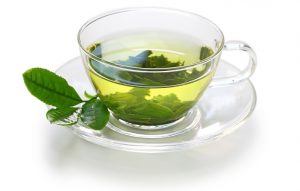
“Green tea is high in antioxidants, by consuming several cups a day you can continually boost your antioxidant intake throughout the day,” explains Barnes. “Matcha green tea would be the best choice for the highest amounts of antioxidants. Matcha green tea comes in a powder, which you simply stir into hot water. For some, it takes a little getting used to, so perhaps start with half a teaspoon and build up to one teaspoon.”
2. Blueberries
Blueberries contain high levels of antioxidants and nutrients; they are rich in vitamins K and C, manganese, fibre and copper. They contain anthocyanins, the colourful antioxidant pigments that give food their shades of blue, purple and red. Blueberries also have a range of hydroxycinnamic acids, hydroxybenzoic acids and flavonols. All of which function both as antioxidants and as anti-inflammatory compounds in the body, and are responsible for the many health benefits we gain from blueberries.
3. Ginger
Ginger contains a bioactive compound called gingerol, which has powerful anti-inflammatory and antioxidant properties. It also contains magnesium, vitamin B6, iron, vitamin C, potassium, copper and manganese. Studies suggest that ginger may lower blood sugars, help chronic indigestion, reduce menstrual pain, lower cholesterol, protect against Alzheimer’s and improve brain function. “Ginger is particularly high in antioxidants, it is best to consume it as the raw root by adding it into hot drinks, soups and stews,” adds Barnes.
4. Strawberries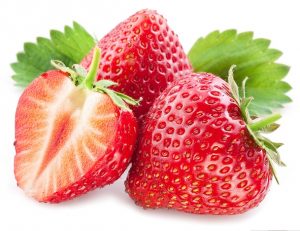
Strawberries are also fantastic for an antioxidant health-boost; they are particularly beneficial for eye health and for maintaining healthy skin. This bright red fruit reduces the bad cholesterol and can contribute to a healthy heart. A 2011 study found that strawberries boost blood antioxidant levels and can help prevent chronic diseases. They also contain a high concentration of phenolic compounds, including flavonoids which are known to have antioxidant properties. Evidence has shown that strawberries lower the risk of heart disease, diabetes, cancer and dementia.
5. Beans
Beans are also an excellent source of antioxidants, studies have found that one half cup of red beans yield 13,727 antioxidants, red kidney beans have 13,259, and pinto beans yield 11,864. They are also low in calories, have no cholesterol and contain lots of complex carbohydrates. These types of beans are full of B vitamins, potassium and fibre, which promote digestive health and relieve constipation.
6. Dark Chocolate
“Another great source of antioxidants is dark chocolate, and unsurprisingly compliance with taking it is generally pretty good! I’d recommend a good quality raw dark chocolate bar made using cacao, cacao/coconut oil and a natural sweetener such as coconut nectar,” commented Barnes. Made from the seed of the cocoa tree, dark chocolate is one of the best sources of antioxidants. You should buy a high quality dark chocolate containing 70-85% cocoa, which is a good source of iron, magnesium, copper and manganese. Don’t scoff an entire bar in one sitting though; dark chocolate should be eaten in moderation due to the sugar content.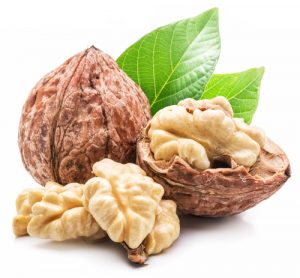
7. Walnuts
Studies have found a gram of walnuts contains nearly 70 units of polyphenols, a form of antioxidant, which is more than any other nuts tested. Walnuts have almost twice as many antioxidant polyphenols as peanuts, pistachios, almonds, Brazil nuts, hazelnuts, cashews, macadamias and pecans, research has found. Studies suggest that walnuts support brain health, improve male fertility and lower the risk of heart disease. As well as being high in antioxidants, walnuts also contain high levels of omega-3 fats, copper, manganese and biotin.
8. Cranberries
Studies have found that cranberries can help boost the immune system, and they are most known for their effectiveness in treating a urinary tract infection. A 2008 study found that cranberries and cranberry products have the highest levels of phenols- a disease fighting antioxidant which can reduce the risk of heart disease.
9. Prunes
Surprisingly, prunes also contain high levels of antioxidants and are a good source of vitamins. According to the United States Department of Agriculture, eating just four prunes provides you with 12% of the daily value for fibre, 32% of recommended daily consumption of vitamin K, and 9% of potassium. They are known to be beneficial in reducing the risk of colorectal cancer, prevention and treatment of cardiovascular disease, breast cancer and diabetes. They are also a good source of vitamin A.
10. Cherries
Montomerency cherries are a great source of the antioxidant melatonin, other types of cherries have it too but montmoerency has the most. Melatonin helps to protect the skin against UV radiation. Researchers have discovered that it also helps to repair sunburned skin, since it stimulates new skin-cell growth. Cherries are also packed with vitamin C.
